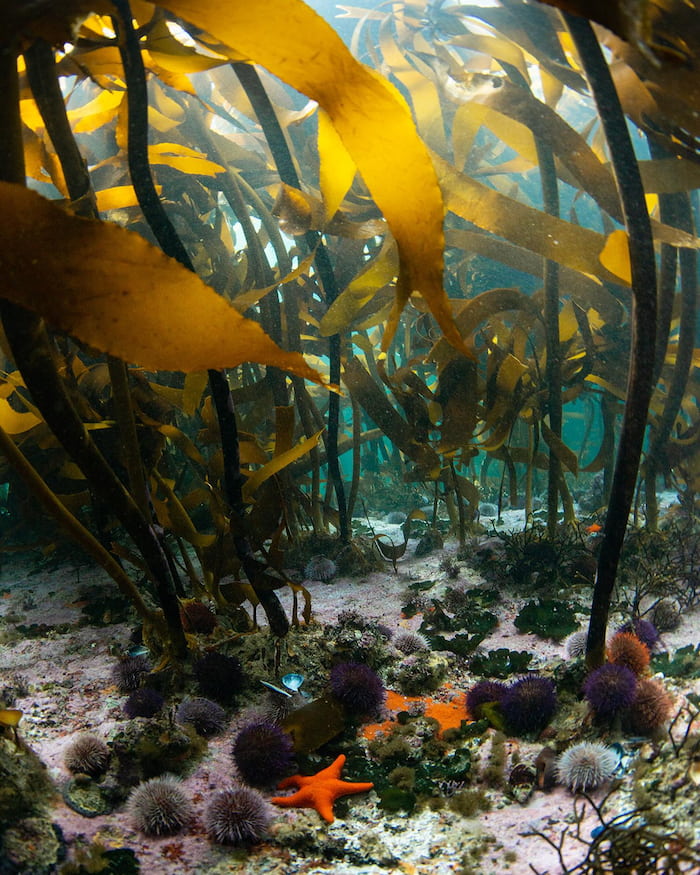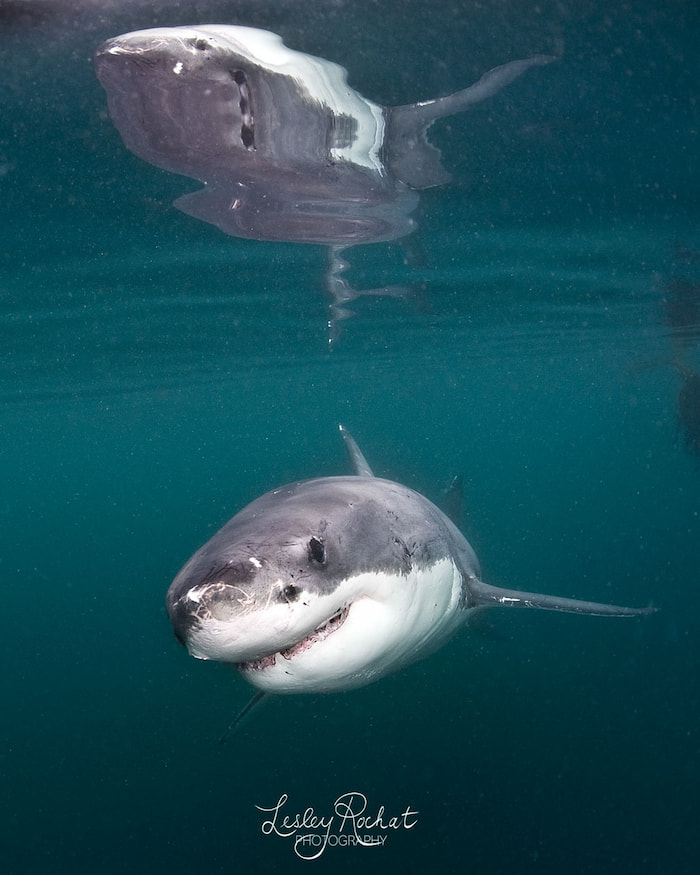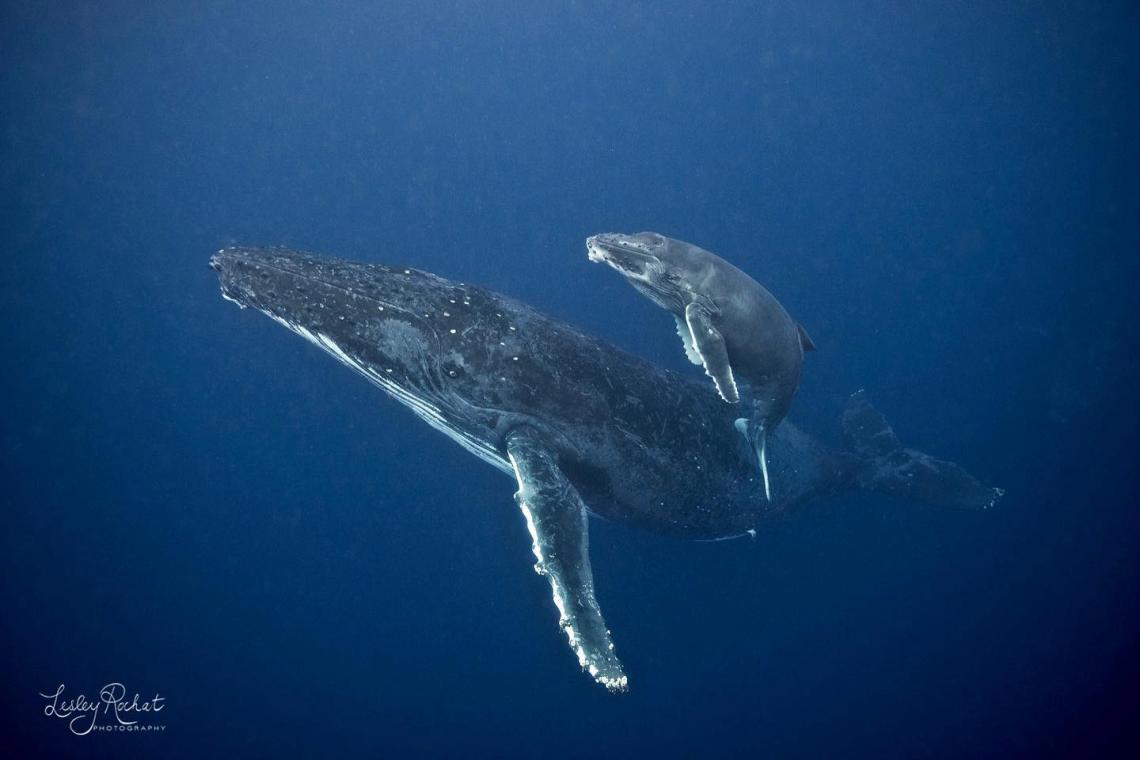No doubt, witnessing a humpback whale breaching only a few metres away from you or swimming with dolphins or sharks amid a feeding frenzy, such as the sardine run in South Africa, can be transformational experiences. It certainly has been for me to the extent that for the past 25 years, I’ve searched for such encounters, either natural underwater phenomena or big marine animals.
Planning to see them was simple: they were known to be in an area at a specific time of year, so I’d schedule my travel calendar accordingly. However, in recent times, this old way of mapping my photographic expeditions has no longer been 100% reliable. The reason is that many big marine animals migrate, but climate change is playing havoc on their travel plans.

To get a grip on these changes, understanding why animals migrate becomes useful. The great Aristotle once said that nature does nothing useless, and this certainly pertains to their habit of migration, which is motivated by their need for food, more favourable living conditions, or breeding. The common denominator is the survival of the species. Some travel relatively short distances while others, like the tiny but formidable migrator, the arctic tern follow zigzagging routes between Greenland and Antarctica each year, clocking up about 44,000 miles.
Climate change, however, is causing some alarming changes to our beautiful big blue: Many marine animals thrive in very specific ocean temperatures, and climate change has caused the oceans’ temperature to rise steadily, resulting in more than 80% of marine life migrating to different places, many forced to change their breeding and feeding patterns. Some ocean species have migrated almost 1000 kilometres from where they were abundant just a few decades ago. Sadly, some species may not be able to adapt quickly enough and are threatened with extinction.

It’s a global issue, and while I have witnessed changes along our coastline here in South Africa, which stretches for over 2000 kilometres, the diversity of the magical cool kelp forests that blend into the warm, tropical underwater ecosystems remains some of the most beautiful in the world. Our terrestrial Big Five is matched by our ocean Big 5: endangered, endemic African penguins, sharks (up to 200 different species of sharks, including rays and skates), seals, dolphins and whales (about 37 different species of dolphins and whales - southern right whales and humpback whales are best sighted).
One of the most concerning changes I’ve witnessed was the disappearance of the great white sharks from False Bay: Since 2018, very few white sharks have been spotted. We still have white sharks in other parts of our coastline, but the famous flying sharks of False Bay, which I took for granted all these 30 years of living here, seemed to have disappeared. I was devastated to think that the unprecedented may have occurred –great white sharks and Cape Town were synonyms – it felt like we had lost our identity.
Many a debate ensued in search of answers; some blamed the orcas named Port and Starboard that are regular visitors to the bay, and some blamed the overfishing from the destructive demersal longline fishery in the bay, which targets some of the white sharks’ food source, and still others blamed climate change. Whatever human impact it is, the bottom line is that from an average of 205 Great White sightings a year in False Bay, we now have rare sightings, or mostly none at all.
The impact of climate change on natural phenomena such as the sardine run, referred to as the ‘greatest shoal on Earth’, is also documented. This is the greatest gathering of ocean predators known, which happens when a current of cold water heads north from the Agulhas Bank, bringing with it millions of migrating sardines. I’ve been fortunate to photograph it numerous times, but for some years, I’ve had no luck; either I’ve been too early, or the sardines have failed to arrive. Research has revealed that a critical and cool 21 degrees Celsius is required for the event to occur. Still, as oceans warm, this has been impacting the arrival of the sardines as well as their timing, shifting it later and threatening to push them further south to cooler waters over time. For now, I’ve found it best to book later in June and July and have continued to have extraordinary experiences.
Best Marine Experiences:
- May, June and July are the time for the famous sardine run, which stretches all along the east coast of South Africa into Mozambique.
- May to end October: excellent whale watching season for migrating humpback whales and southern right whales in Cape Town and along the east coast of South Africa. It is also suitable for shark cage diving in the Western Cape.
- Entire year: viewing of the endangered African penguins in Cape Town.
- October to end April: suitable for offshore shark diving, blue sharks and makos off Cape Point, as well as SCUBA diving and snorkelling safaris in the cook kelp forests with Cape fur seals or endemic shark species. Warmer waters further along the east coast bring an array of tropical marine life encounters, such as turtles, whale sharks, manta rays, dolphins, various big shark species, and tropical reefs.
Places to stay in Cape Town
Here in Cape Town, my hometown, another climate change impact has been observed: I’ve missed seeing the many southern right whales breaching in False Bay in front of my house. Their numbers in 2019 were the lowest recorded since 1995. What we have lost on the swings, in this case, we’ve gained on the roundabouts, and the number of migrating humpback whales visiting our coast has increased.
Fellow conservationist and environmental educator Terry Corr has 43 years of local environmental knowledge. He has spent over 1000 hours sea-kayaking in False Bay with adventurers from around the globe. “There’s no doubt there are big changes underway as a result of human impact; for example, I’ve seen a proliferation of Cape fur seal pups since the white sharks left the bay, and serious erosion of dunes as sea level rises, as well as huge tracts of sea urchins, which have replaced the abalone that has been poached,” he says with concern, but just as quickly he beams a smile and adds: “But where in the world in just one week can you paddle among a pod of dolphins, have a humpback whale mother and calf, and two orcas come up to investigate you, swim with a raft of penguins, snorkel with Cape fur seals, SCUBA dive with spotted gully sharks, and watch a cute little sea otter nibble on his catch in front of you!”

Yes, South Africa is still one of the hotspots for life-changing marine animal encounters, but you’ll need to consider these global changes to time it right. Local ecotourism operators such as AfriOceans Travel, which I founded, can help guide you and offer you an opportunity to travel responsibly. Authentic, responsible tourism businesses like ours ensure that funds are channelled back into our non-profit organisation, AfriOceans Conservation, and our projects, which help local communities and the environment.
We specialise in extraordinary bespoke African experiences, reconnecting people to Nature through transformative wildlife experiences above or below the waves. In so doing, we empower our travellers to help turn this tide of great destruction into a time of significant recovery.
Shark Warrior Adventures
AfriOceans Travel, a division of Shark Warrior Adventures, is an authentic responsible tourism business, which funds the conservation projects and environmental education programmes of the nonprofit organisation, AfriOceans Conservation Alliance est.2003 and founded by Lesley Rochat. http://sharkwarrior.com/
Lesley Rochat is an award-winning ocean conservationist, founder of Shark Warrior Adventures and the nonprofit organisation AfriOceans Conservation Alliance and the organisation’s self-funding eco-tourism business, AfriOceans Travel. She is a photography teacher, environmental photojournalist, underwater photographer, author, speaker and an expedition leader. She is a Fellow of the Explorers Club and an inductee of the Women Divers Hall of Fame. She leads private photographic safaris to Africa and photographic dive expeditions and workshops worldwide. lesleyrochatphotography.com lesleyrochat.com

